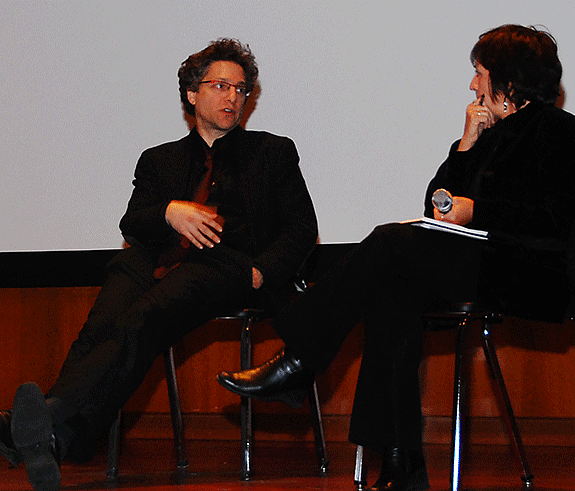The Rule of Law Under Pressure

Each year, the School of Social Science designates a theme to create a sense of community amongits Members. During the 2007–08 academic year, the theme was “The Rule of Law Under Pressure,” in which Members looked at the pressure that comes from the “war on terrorism” (and other wars) and from the claim that military and political emergencies require the expansion of executive power and the violation of conventional moral norms.
“September 11th and the efforts of this country to deal with terrorism have put a lot of pressure on the question of what the rule of law is and how to maintain it over time,” says Danielle Allen, UPS Foundation Professor, who led the seminar. “We have issues with habeas corpus and an administration working aggressively to expand executive power. These are historically important phenomena and it is critical to determine why certain actions do in fact undermine the rule of law or support it.”
How does the rule of law work to protect ordinary citizens? What is the role of judges and courts in maintaining the rule of law? When do the “needs of the hour” override constitutional limits? What does “necessity” mean in politics and war, and who decides when it comes into play? These are some of the questions that Members examined.
“It surprised me how hard it is to talk about,” says Allen. “The first two seminars were pretty interesting because we thought we knew what the rule of law was and what it means. We discovered that each discipline has a very different idea of what the rule of law is. It took a number of sessions before we could even talk to each other properly.” For Allen, the rule of law is “not just a set of procedures or a set of institutional norms. It is also a set of commitments. Those commitments relate to fairness, freedom from constraint and arbitrariness, and equality, which open up space for greater or increased human flourishing.”
As an outgrowth of the seminar, Members initiated a monthly film-screening group called “Rethinking War.” The March screening of Secrecy in Wolfensohn Hall included a discussion by filmmakers Peter Galison and Robb Moss. Galison, Pelligrino University Professor of the History of Science and of Physics at Harvard University, has been a Trustee of the Institute since 2004 and is a former Member (1994–95) of the School. The film, which explores the vast, invisible world of government secrecy and the tensions between our safety as a nation and our ability to function as a democracy, had its premiere at the Sundance Film Festival in January.